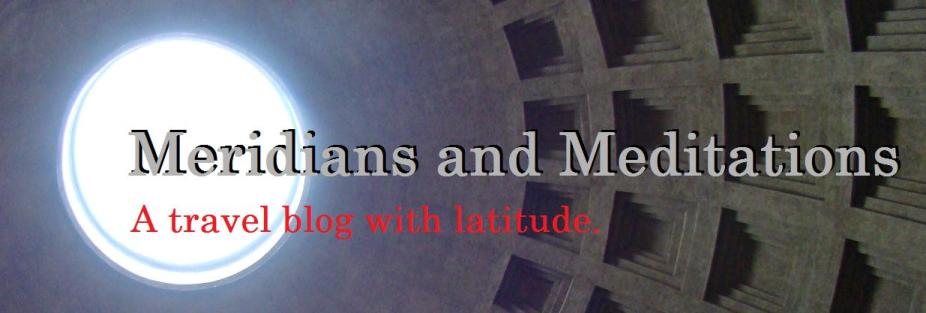Times are long past when most of us sought insight in a Sunday Bible sermon. But these are not ordinary times, with many of us struggling to understand what “one nation, under Donald Trump” really means. Why do so many conservative Americans support a leader determined to turn his back on what were once bedrock American values? In 2016, evangelicals' support for Trump, a man whose history, acts, and temperament should make him radioactive to them, was 81 percent. It has not signficantly dropped since.
To understand why, let the congregation open their Bibles to Genesis 11, v. 1-9—the story of the Tower of Babel. Here, humanity is at the stage of reclaiming an earth newly redeemed after the Flood. In one place, on a plain called Shinar, the people decide to “build a city and tower, whose top may reach unto heaven…” The rationale for building the tower seems to be nothing more than post-diluvian showing-off, “to make us a name, lest we be scattered abroad upon the face of the whole earth.” (The implication that a tower as high as heaven would keep people safe and dry from future floods is only implicit, but interesting.)
We all know what happened: “And the Lord came down to see the city and the tower…and said, ‘Behold, the people is one, and they have all one language; and this they begin to do; and now nothing will be restrained from them, which they have imagined to do.’” This being the jealous Old Testament God, such an affront cannot stand. “Let us go down,”, He says, “and there confound their language, that they may not understand one another’s speech…and so the Lord scattered them abroad…and they left off to build the city.”
This is usually taken to be a just-so story about how human beings came to be divided by language. And indeed, it is framed that way in Scripture. But it is striking that the impetus for God’s intervention isn’t to help humanity, but to hobble it. God doesn’t want people to attain above their station, and in fact dreads them accomplishing “[anything] which they have imagined to do.” As such, the Babel story isn’t only about where languages came from. It’s also about how the Lord deals with mortal presumption.
Such anti-humanistic sentiment rings through into early Christianity. In Corinthians, the apostle Paul pours scorn on the “experts” of his time, declaring “For it is written, I will destroy the wisdom of the wise, and will bring to nothing the understanding of the prudent…”. Instead of placing faith in human authorities, better to take our chances with fools, “because the foolishness of God is wiser than [that of] men.” In his Prescription Against Heretics, Tertullian agreed, “We have no need of curiosity after Jesus Christ, nor of research after the gospel. When we believe, we desire to believe nothing more.”
These are the lenses through which many evangelicals today see science, progress, and the liberal project. To progressives, the achievements of technical civilization, from the eradication of disease to the physical comforts we take for granted, are concrete proof of what we can achieve when we put our minds to constructive ends. When Barack Obama tweeted “There’s nothing we can’t do” in 2013, he probably intended nothing more than to be casually supportive. But in his phrasing, so uncannily close to the Babel story, he reflects the rationalist vision to remake the world in our image.
In other ears, such optimism only affirms what the Lord feared when He saw the tower rising, of humans threatening to achieve “which they have imagined.” Today, the vanity lies not in some physical structure, but in the “tower” of privileges and entitlements progressives want to build, a human attempt to rival God. To them, the real threats aren’t disease or hunger or war, but the arrogance of trying to fashion a kind of “Heaven without God”. They look at dreams of a just, equitable, prosperous and peaceful world, where people are free to love who they choose, where alliances keep the world from chaos, where everyone enjoys basic rights to good health and a living wage, and where humans work to protect the planet—and shudder.
They want no part of your technocratic utopia. If we are meant to enjoy such boons, they are for God alone to bestow. God will take care of your preexisting condition. God will decide whether the planet burns. If God wants the world plunged into war, there will be war. The only true “vaccine” against measles is God. He will decide when and how you suffer. Not Nancy Pelosi, nor scientists, nor career diplomats at the State Department.
From a certain point of view, there’s a logic to it. After all, what’s the point of devoting one’s entire life to a faith whose ultimate reward, its afterlife, is only marginally better than modern Sweden? Better to “burn it all down” than face the prospect of God made irrelevant. By these lights, the agenda of expansive, activist government is begging for shoving-over, a good Biblical scattering. Crass and corrupt as he is, Trump “the chosen one” is doing the Lord’s work, laying low the slender Jenga tower of rationality. Just as the Lord Himself did on the plains of Shinar, the last time human beings dared dream of reaching Heaven on their own.
Glimpsed from outside, this yearning to “burn it all down” looks deeply perverse. Such is our state of Babel-like mutual incomprehension, where the deeply-held faith of some seems like a nihilistic death-cult to others. For us, “You have to go through Hell to get to Heaven” is just something people say. To the forever-Trumpers, it is a promise. And it looks like we still have a lot of Hell to go through.
Nicholas Nicastro is a PhD in psychology, novelist and critic. His latest novel, Ella Maud, is available now from Endeavour Media UK.
© 2019 Nicholas Nicastro

